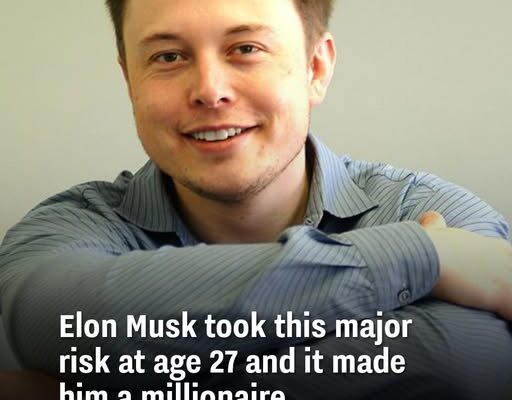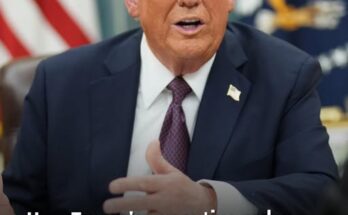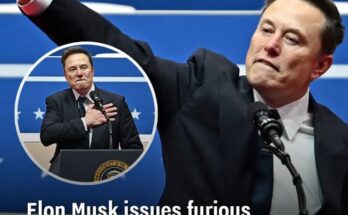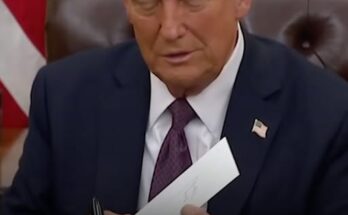One of Elon Musk’s earliest business risks paid off massively for the tech mogul, transforming him into a millionaire at age 27 and serving as the foundations for the massively successful businessman he is today.
Finding success in business is very much a case of taking the right risks and hoping that you find a bit of luck along the way.
One clever investment or key decision could be make or break for many, and that success can very much continue down the line if you make the right moves.
That’s very much the case for Elon Musk, as the richest man in the world didn’t exactly have the most glamorous beginnings to his business career, yet one smart risk that involved betting on the success of the internet allowed him to soar quickly up the financial ladder.
The risk in question was starting a company called Zip2 with his brother Kimbal, which provided city guides for online use to newspapers.
While this might not sound particularly interesting or innovative to modern ears, it proved to be an incredibly savvy move at a time when the internet was in its infancy.
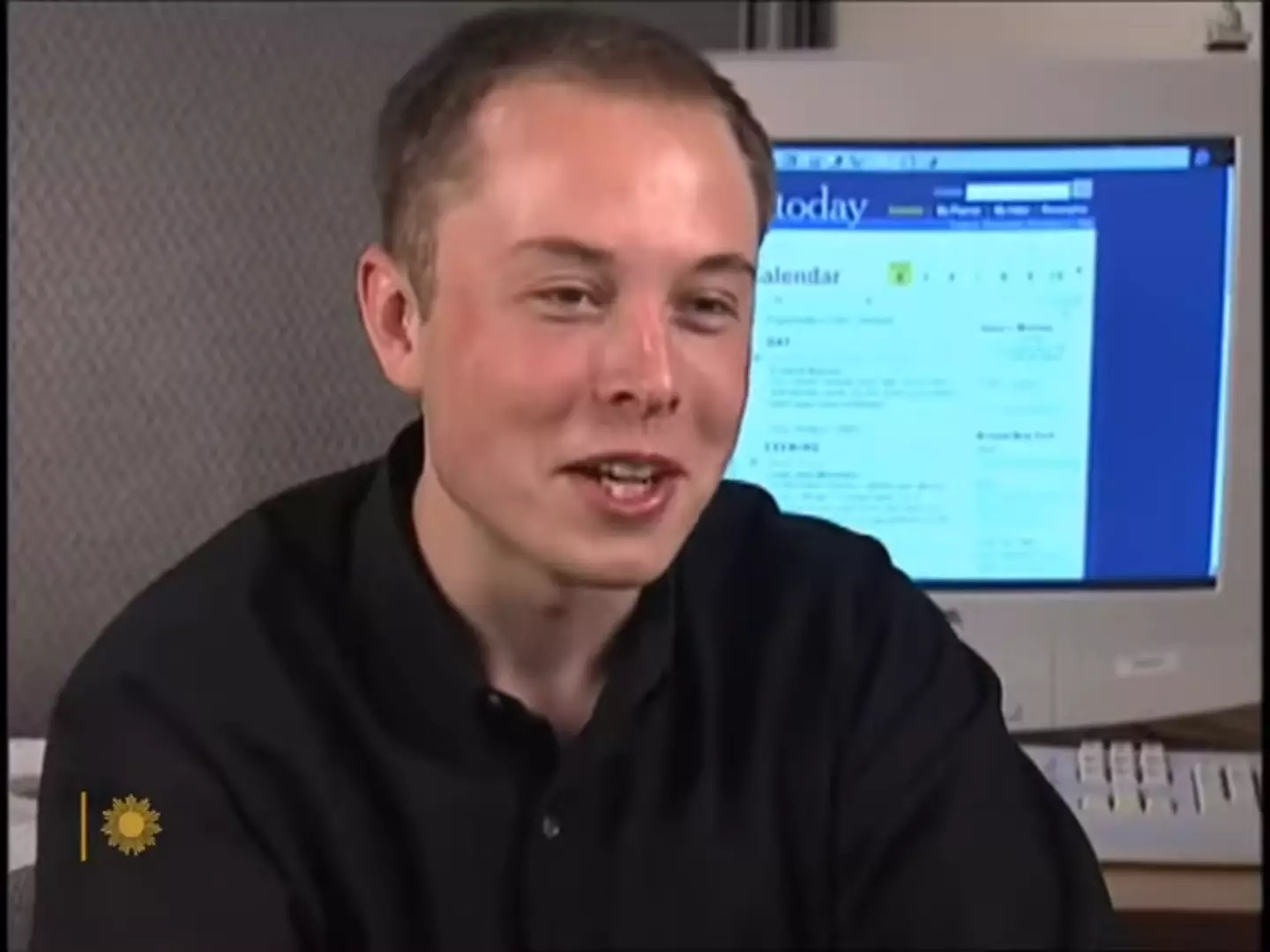
Zip2 allowed Musk a platform that made him to billionaire he is today (CBS News)
Serving as a digital yellow pages of sorts, Musk convinced electronic map company Navteq to license their mapping software to him for free, which he then combined with business listing databases to create Zip2.
It was such a financial risk for the pair that they had to live in the company’s offices as they couldn’t afford their own place to stay, but that perhaps showed their dedication to making Zip2 a success.
The company was eventually bought four years after Musk and his brother started out for a staggering $307,000,000, and Elon pocketed around $22,000,000 of that figure.
He used that as a launching point into what he is today, having merged his X.com online bank with PayPal and eventually sold that to eBay for $1,500,000,000 in 2002.
After that sale he finally created what many call his finest work in SpaceX – an aeronautics company that has been able to rival NASA in recent years and maintains its aim to send humans to Mars.
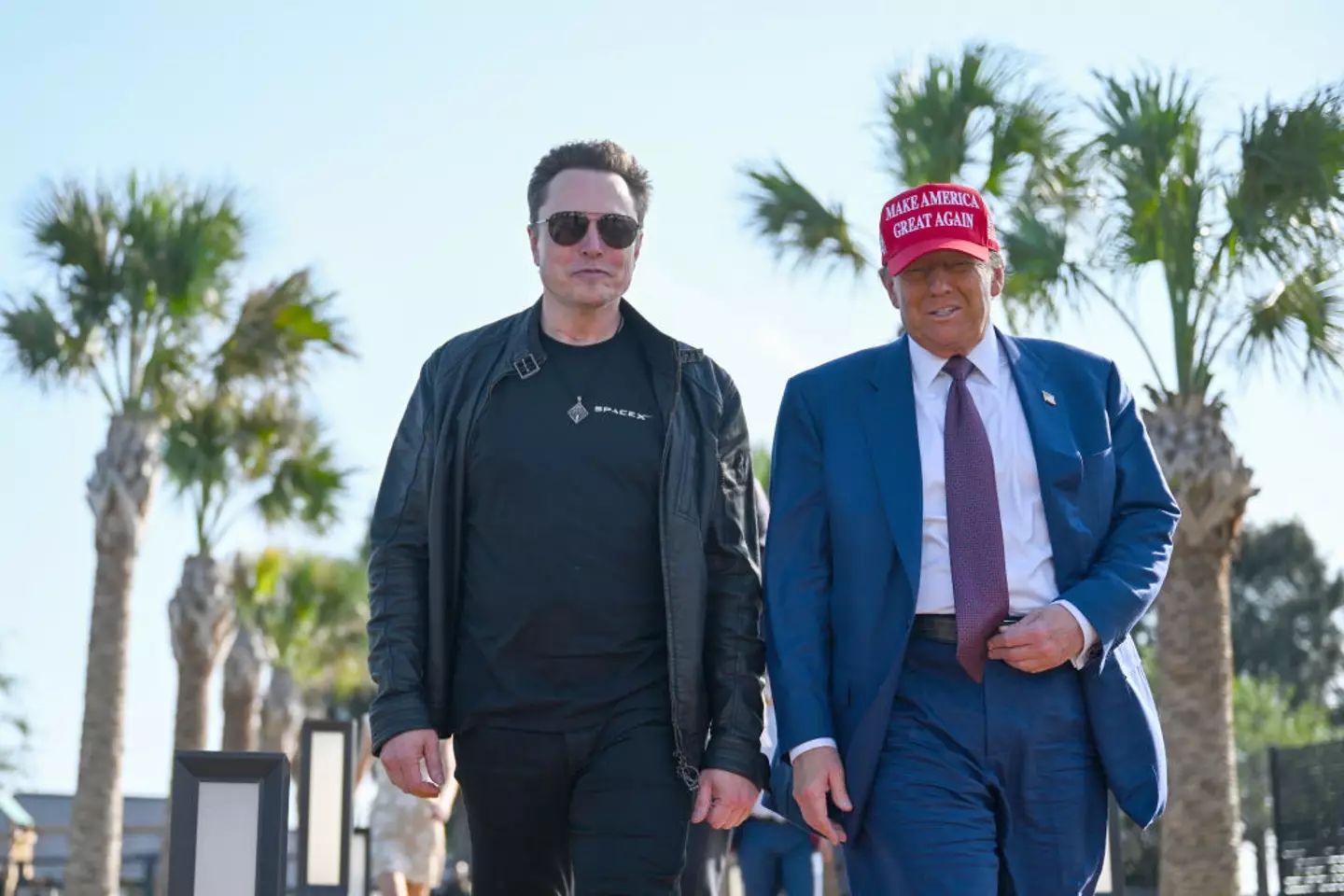
Musk, now the richest man in the world, has used his money to gain political power alongside Trump (Brandon Bell/Getty Images)
Of course, Elon’s success has now led him to become the richest individual in the world, holding a net worth of $439,000,000,000 according to the Bloomberg Billionaires Index – which is nearly double that of Jeff Bezos in second place.
While he does have notable failures such as his acquisition of Twitter – which has dropped 72% in value since Musk’s takeover – his businesses remain ultra-successful and have allowed him to power himself into US politics with Donald Trump’s recent election victory.
Featured Image Credit: Steve Granitz / Contributor / Paul Harris / Contributor / Getty

The race to be the biggest electric vehicle manufacturer continues, and while the Chinese-based BYD takes the crown, Tesla is the biggest in the USA.
As we’ve seen the once gas-guzzling Jaguar vow to go all-electric, it looks like people are finally taking the EV industry seriously.
Tesla continues to innovate, and although Elon Musk knocked a jaw-dropping $15 billion off his net worth with the disappointing October 2024 reveal of the Tesla Cybercab and Robovan, its stock has climbed over the years.
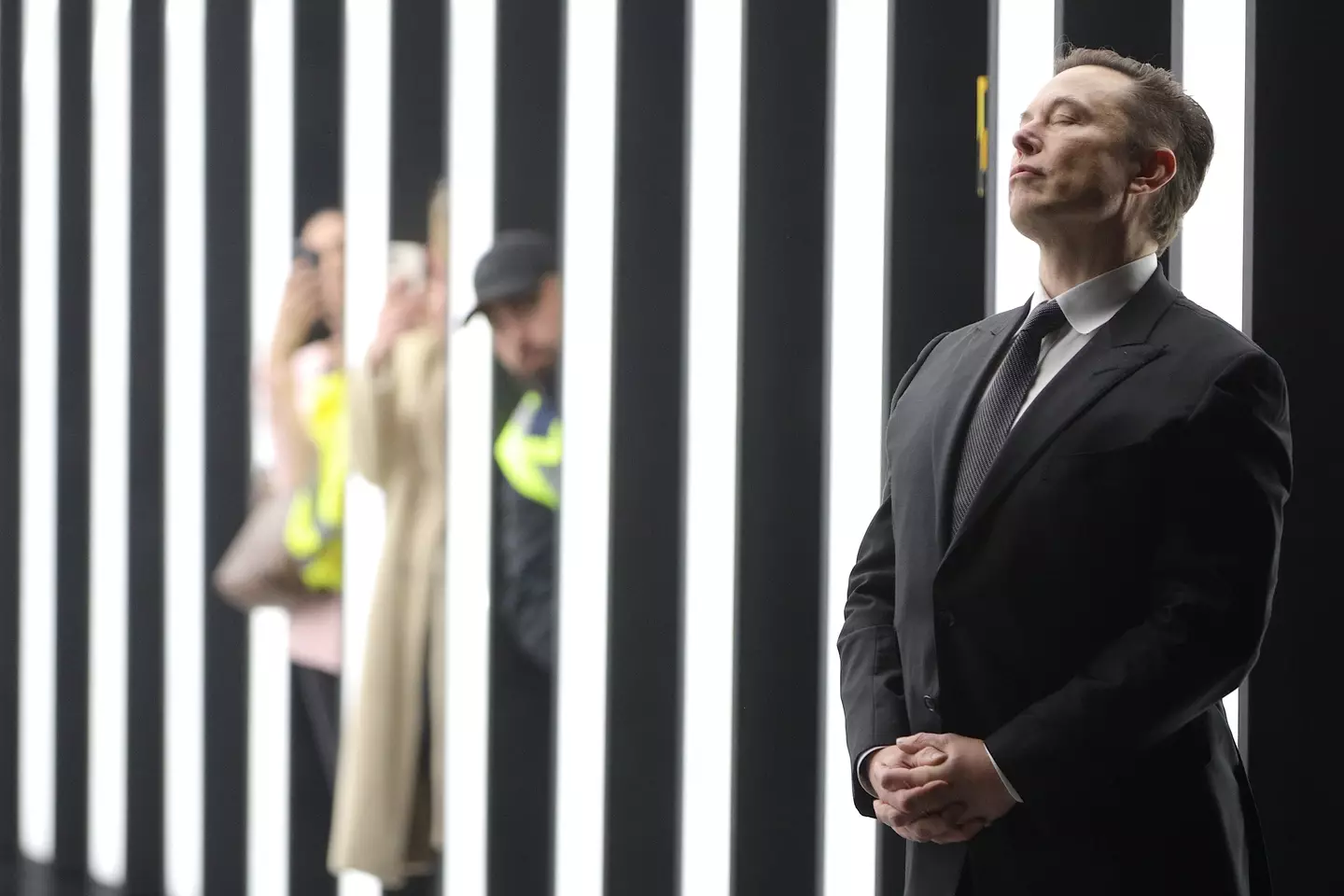
Europe’s largest pension fund has sold its shares in Tesla (Pool / Pool / Getty)
Although navigating the stock market is never easy, Bloomberg reports that Europe’s largest pension fund sold its whopping €571 million ($585 million) stake in Tesla Inc. in 2024. The sordid saga stems back to an incident in 2018 when Tesla shareholders approved a record-breaking pay packet for Mr. Musk. Back then, Musk was posed to receive a lucrative pay packet that would allow him to buy a maximum of 304 shares at just $23.34.
Tesla has been on an upward trajectory, with it hitting an all-time stock price of $479.86 on December 17, 2024. They’ve dipped slightly since then, but at the time of writing, Tesla shares are still worth an impressive $396.
A spokesperson for Stichting Pensioenfonds ABP said, “We had a problem,” when referring to Musk’s pay package. It apparently considered costs, return, and its own responsible investment requirements before it made the decision to sell.
When it comes to Musk’s withheld pay package, one shareholder sued Tesla and Musk in 2018, claiming that Musk has influenced the board – especially his brother, Kimbal Musk. Jumping forward to January 2024, a Delaware judge sided with the shareholder and struck down Musk’s compensation package. Although the compensation originally started at just $2.6 billion, it ballooned to $56 billion by the time the judge ruled.
In December 2024, it was withheld a second time, with Kathaleen St. J. McCormick saying the Tesla board was ‘influenced’ by Musk. She said the agreement was “beyond the bounds of reasonable judgment.”
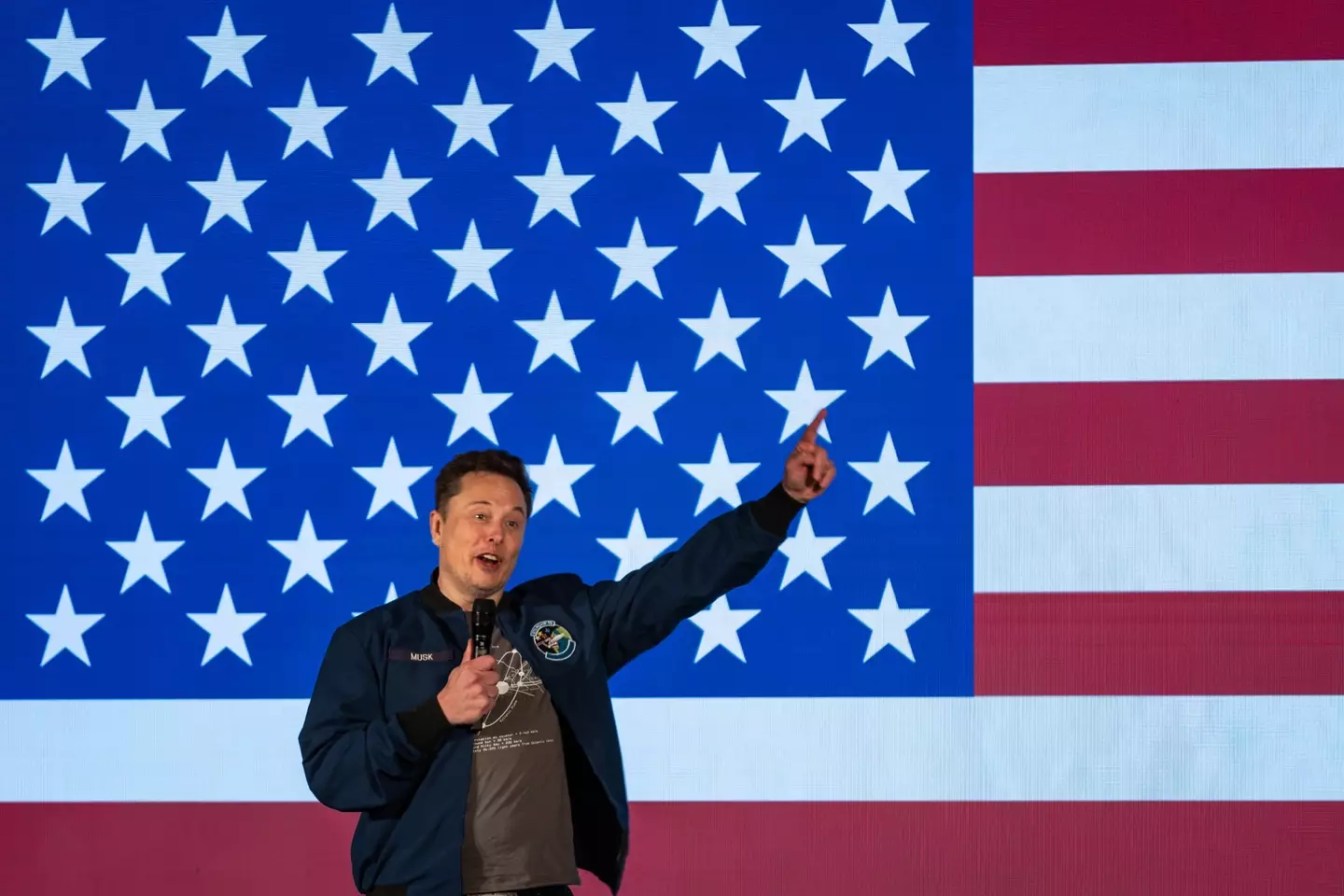
Musk’s political leanings aren’t said to have influenced the decision (Samuel Corum / Stringer / Musk)
The case rumbles on, while Stichting Pensioenfonds ABP selling its massive share is another sting.
Still, with Tesla being worth around $1.27 trillion and its stock rising by 74% in the past year, it’s not exactly struggling.
Some might think that Musk’s new political allegiance with Donald Trump could have something to do with the stock sales, although a Stichting Pensioenfonds ABP spokesperson told Fortune this isn’t the case. The company’s portfolio apparently shifted before October, which is when Musk noticeably threw his significant social media weight behind European politics and aligned further with similar values to Trump.
Despite $585 million being a massive amount, it only represented around one-tenth of ABP’s total investment in U.S. megacorps. In contrast, the European fund had around €5.6 billion invested in Nvidia at the end of September, €6.0 billion in Microsoft, and €6.3 billion in Apple.
As for Musk’s pay packet, Stichting Pensioenfonds ABP reiterated to Fortune, “This is by no means the only reason,” it sold its shares.
Featured Image Credit: ANDREAS SOLARO / Contributor / Smith Collection/Gado / Contributor / Getty

Elon Musk has appealed a record-breaking $56 billion pay package after it was rejected a second time.
Earlier this week, the world’s richest man filed an appeal with the Delaware Supreme Court after the case was rejected by a state judge for the second time.
Tesla shareholders had initially voted in approval of Musk’s pay package back in 2018.
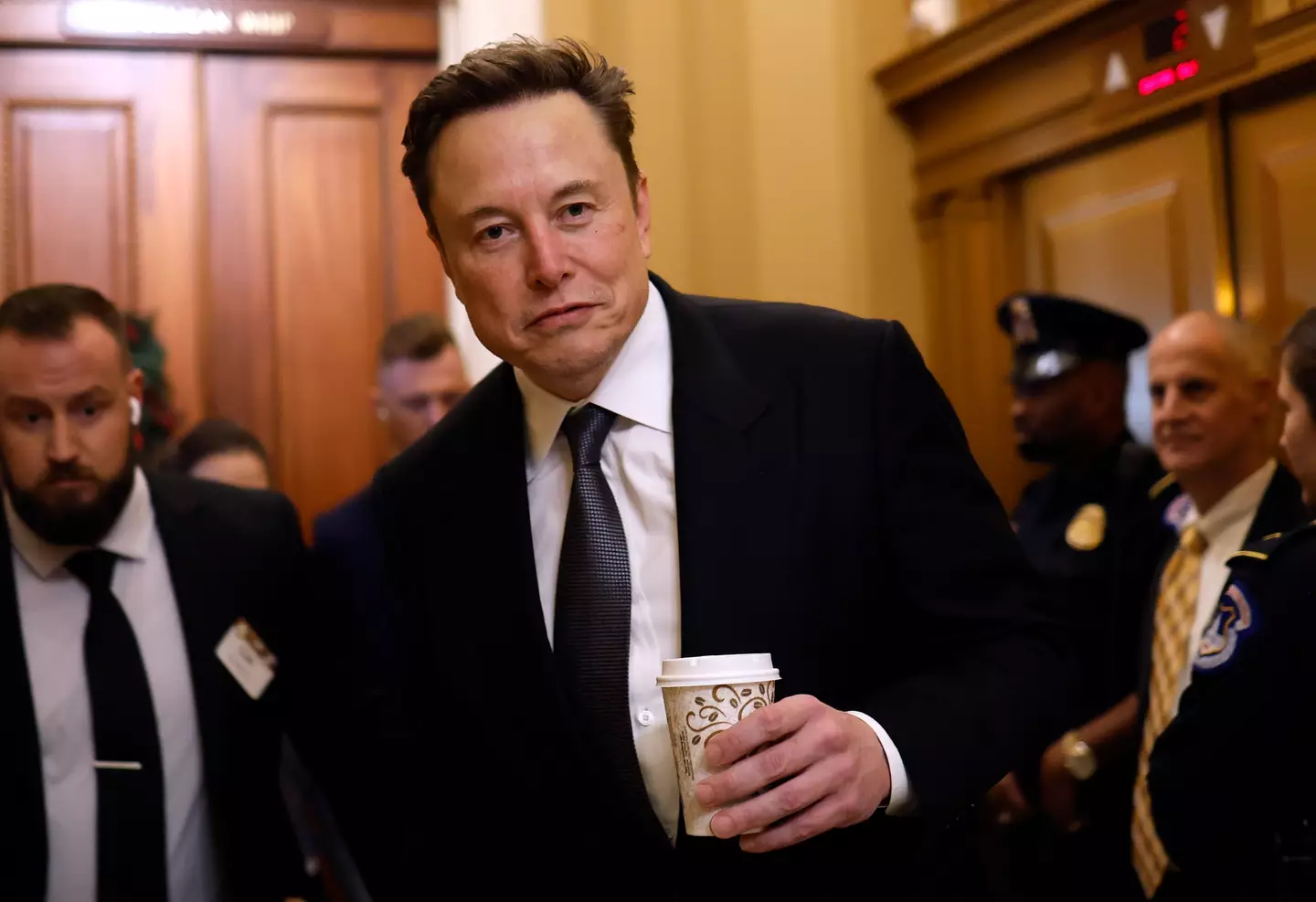
Elon Musk has appealed the judge’s decision (Anna Moneymaker/Getty Images)
The deal gave him the ability to buy a maximum of 304 shares in the firm for $23.34 as long as he met certain performance goals.
Now, Tesla shares trade at a rate of $393 each.
Despite a majority of shareholders approving the pay deal, one investor filed a suit which claimed that the board had been misleading and that the pay package was unfair.
Delaware Chancellor Kathaleen McCormick has since rejected Musk’s bid for the pay deal, stating that Tesla’s ‘unprecedented theories go against multiple strains of settled law’.
Now, Musk has filed his appeal.
Tesla stated last month: “This ruling, if not overturned, means that judges and plaintiffs’ lawyers run Delaware companies rather than their rightful owners – the shareholders.”
Musk has also previously slammed McCormick by taking to his own social media platform X, formerly Twitter, where he described the judge as ‘a radical far left activist cosplaying as a judge’.
The tech mogul had previously said that he wants to own at least a quarter of Tesla’s shares before he makes it a ‘leader’ in robotics and AI.
This would mean buying a significant amount more as he currently owns around 13% of the firm’s shares.
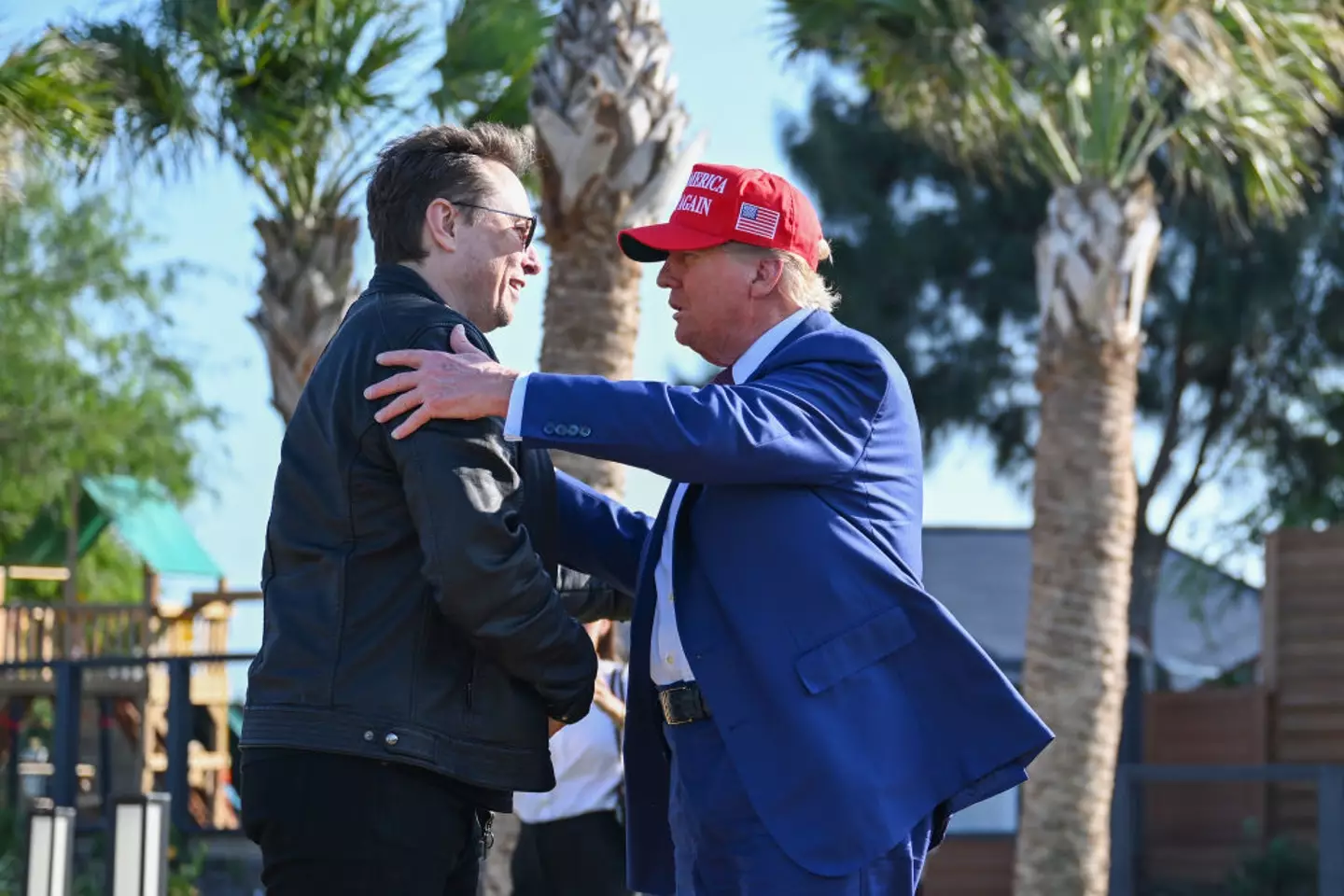
Elon Musk will be taking on a new role under DOGE (Brandon Bell/Getty Images)
Musk is no stranger to using his platform to be vocal about an array of issues and in recent months has publicly expressed his political views often.
He threw his weight behind Donald Trump during last year’s presidential election, even attending political rallies.
Since Trump’s election victory, the president-elect announced that Musk would be taking on the role as head of the new Department of Government Efficiency (DOGE).
While it isn’t technically a government department, it’s reported that DOGE will act as an outside advisor to Trump’s administration.
Under the new role, Musk has already promised to slash the federal budget by trillions.
Speaking about the appointment, Trump has stated that DOGE will help his team to ‘dismantle government bureaucracy, slash excess regulations, cut wasteful expenditures and restructure federal agencies’.
It is not yet clear whether this will impact Musk’s appeal process.
Featured Image Credit: Jeff Bottari/Zuffa LLC/Brandon Bell/Getty Images

Well that didn’t take long, did it?
Just months after Elon Musk and Vivek Ramaswamy were appointed co-heads of the Department of Government Efficiency, it looks like Donald Trump’s plans for a leaner American government are already starting to crumble.
If you took even the slightest bit of notice of the 2024 election campaign, you’d have seen Musk firmly by the President-elect’s side, performing star jumps and cheering ‘Make America Great Again’ from the sidelines.
While Musk and Trump once looked like they were sworn enemies, they’ve become the best of buds as the former looks to be the President’s right-hand man in the tech world.
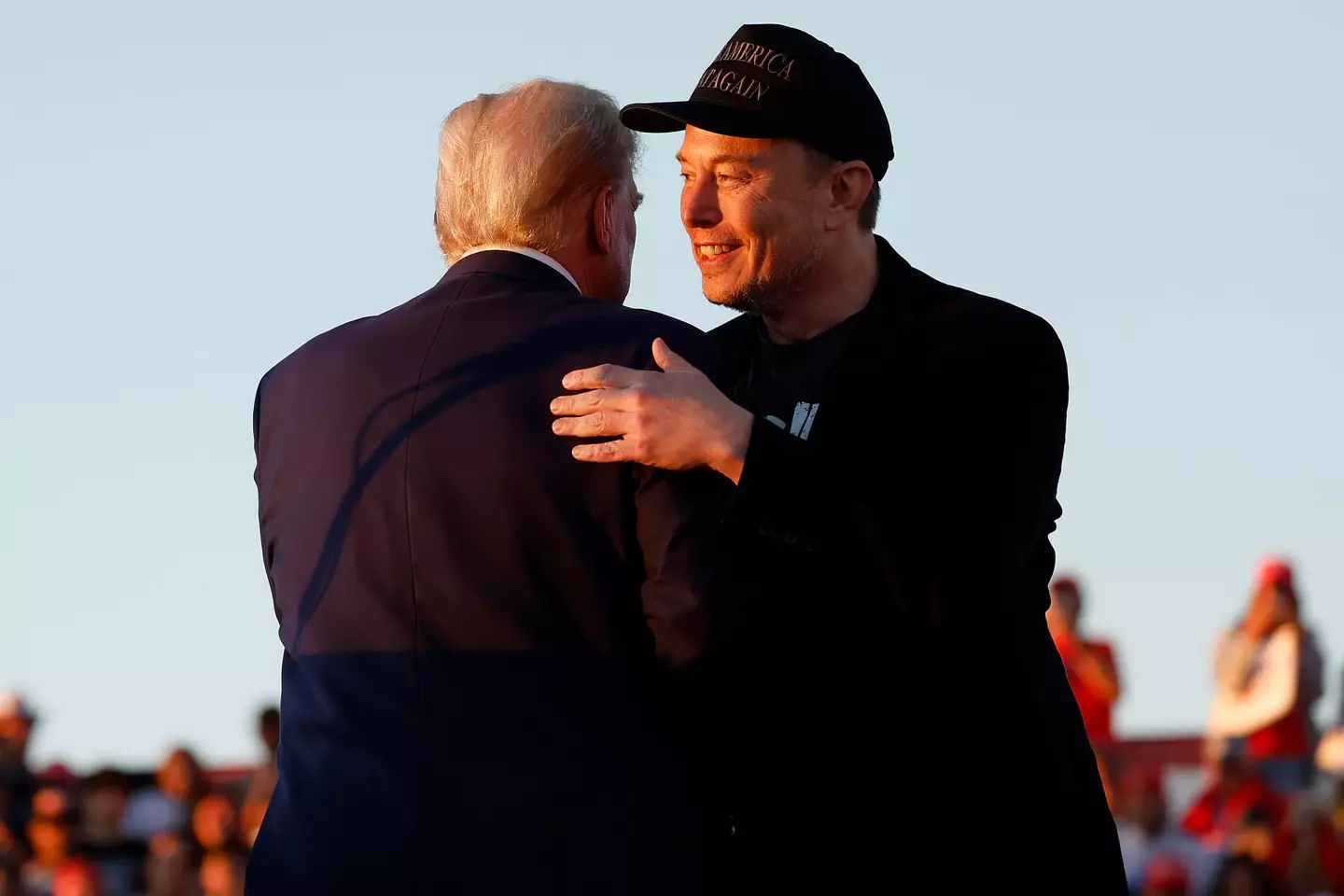
Musk is co-head of Trump’s Department of Government Efficiency (Anna Moneymaker / Staff / Getty)
Still, with Trump pioneering a tech-powered future and Musk’s already substantial wealth soaring in the aftermath of Kamala Harris’ defeat, he’s seemingly in the right place at the right time.
Although it’s not an official position in government, Musk’s role as the co-head of the DOGE (named after his favorite cryptocurrency) could see him wield some substantial power.
The problem is, cutting $2 trillion from government spending is no mean feat – especially as Trump is expected to invest big in defense.
As federal spending currently sits at $6.8 trillion, slicing $2 trillion off the top might seem impossible. It’s not just the general public who fear it can’t be done, with Musk now calling that magic $2 trillion a ‘best case outcome’.
Stagwell CEO Mark Penn grilled Musk in a recent interview and asked: “Do you think the $2 trillion is a realistic number now that you’re looking more closely at it?”
A brutally honest Musk answered: “I think we’ll try for $2 trillion. I think that’s the best-case outcome.”
“But I do think that you kind of have to have some overage. I think if we try for $2 trillion, we’ve got a good shot at getting $1 [trillion].”
The math just ain’t mathing, as speaking at a Trump rally in New York’s Madison Square Garden on October 27, Musk proudly declared he’d be able to slash the federal budget by ‘at least $2 trillion’.
Expanding on his endgame, Musk told Penn: “If we can drop the budget deficit from $2 trillion to $1 trillion and free up the economy to have additional growth, such that the output of goods and services keeps pace with the increase in the money supply, then there will be no inflation.
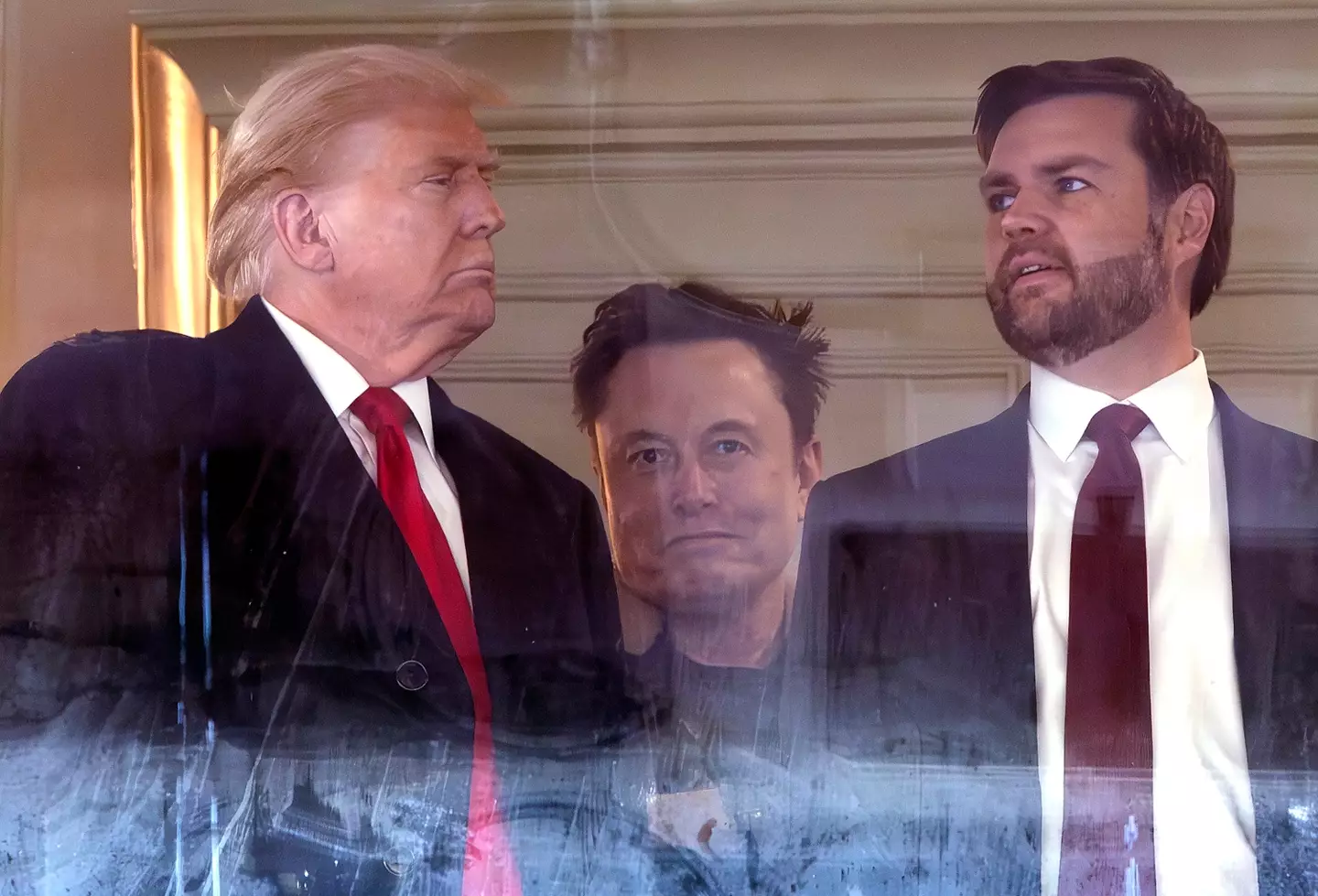
Musk has now admitted that DOGE’s $2 trillion cuts seem unlikely (Kevin Dietsch / Staff / Getty)
“So that, I think, would be an epic outcome.”
Although critics were quick to point out that the entire discretionary budget was only $1.7 trillion, and whole departments would seemingly have to be shuttered to reach this mythical $2 trillion, Musk has stood by his numbers until the Penn interview.
There are still some major concerns, like the assumption that DOGE will have to make cuts to the Medicaid health care program that’s aimed at the poor. Musk has already said this could lead to ‘hardship’ for some, which is sure to be a point of contention.
For now, Musk’s cutely-named DOGE has a lot to prove.
Brian Riedl, a senior fellow at the Manhattan Institute, a center-right think tank, told The Washington Post in October: “There’s a long history of the fantasy that one smart businessman will just identify trillions in waste, but that’s just not how it works.” Just because you think there’s money being put in the wrong pot, it’s clearly not as simple as just moving things around.
Featured Image Credit: Anna Moneymaker / Staff / Brandon Bell / Staff / Getty

With the TikTok ban looming many are considering potential investors, and it’s only natural that the richest man in the world and current X owner Elon Musk one of the first names that comes to mind to ‘save’ the social media app.
Elon Musk‘s investment in social media has had a rocky journey, to say the least. From the offset it was a struggle for the billionaire, as emails reveal he had attempted to back out of the purchase due to concerns over bots, before eventually being forced back in by courts.
This led to significant sum of $44,000,000,000 in October 2022 – around eight to ten times Twitter‘s then-yearly revenue – and the two and bit years following haven’t exactly been smooth sailing for Musk and co.
He’s faced a mass advertiser exodus, lawsuits from former employees who argue that they were unfairly dismissed, and an overall value drop of around 72% that perhaps affirmed Musk’s belief that the initial purchase price was an ‘overpay’.
While many have jumped over to phoenix social media platform Bluesky since the US election, it is arguable that Musk’s control of Twitter, now ‘X’, played a key role in Donald Trump’s victory – which has left musk rewarded with a bespoke role as head of the Department of Government Efficiency.
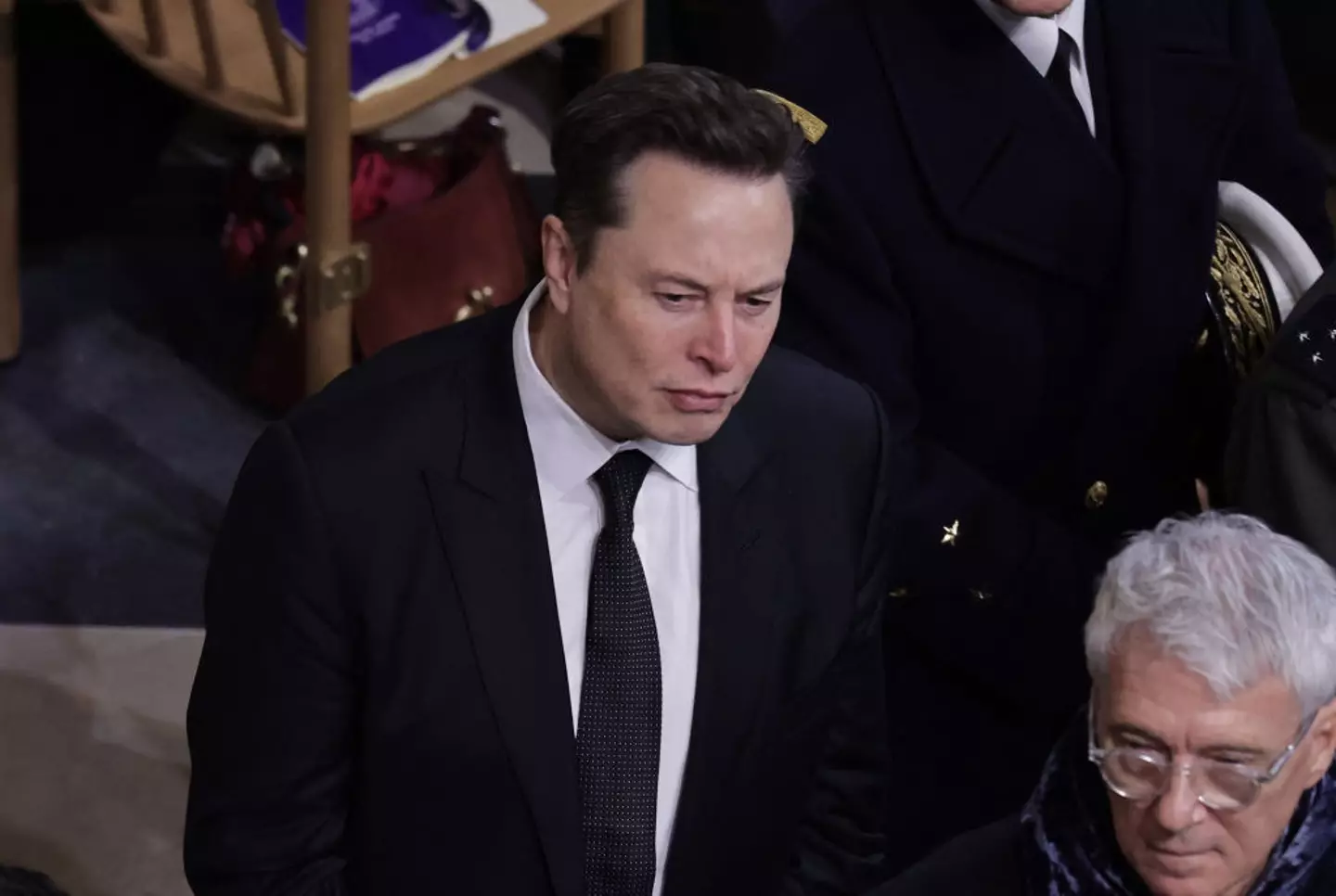
Elon Musk’s handling of Twitter has been criticized by many since his purchase of the site (Christophe Petit Tesson/Pool/AFP via Getty Images)
Many now wonder whether he could be primed to dip his toes into the social media market once more though, as TikTok owner ByteDance could be on the hunt for a potential buyer as a US market ban appears all but confirmed.
The issue, however, is that the purchase of TikTok – even just in America – would be unattainable for most due to the sheer value that the short form video app holds.
Reports from the New York Times indicate that ByteDance is worth around $225 billion, and while it’s unclear what the US branch of TikTok would make up of that, it would definitely be a lot.
Therefore it leaves only the richest individuals on the planet as viable options, and reports from The Guardian indicate that Musk is being internally discussed as a potential landing point for a sale.
Times Now have estimated that, based on Musk’s previous purchase of Twitter, it would cost around $62 billion to $77 billion to take control of the US branch of TikTok – or $144 billion to $180 billion to purchase the app entirely.
This is based on the notion that Musk paid around eight to ten times the yearly revenue of Twitter, and with TikTok’s global revenue of $18.5 billion (with $7.7 billion in the US alone), it certainly would be a hefty investment.
You do wonder whether there would be some form of discount or compromise factored into a US-only sale considering it would be either that or forfeiting all revenue from the region, but it is unclear how a deal would shape up at this point in time.
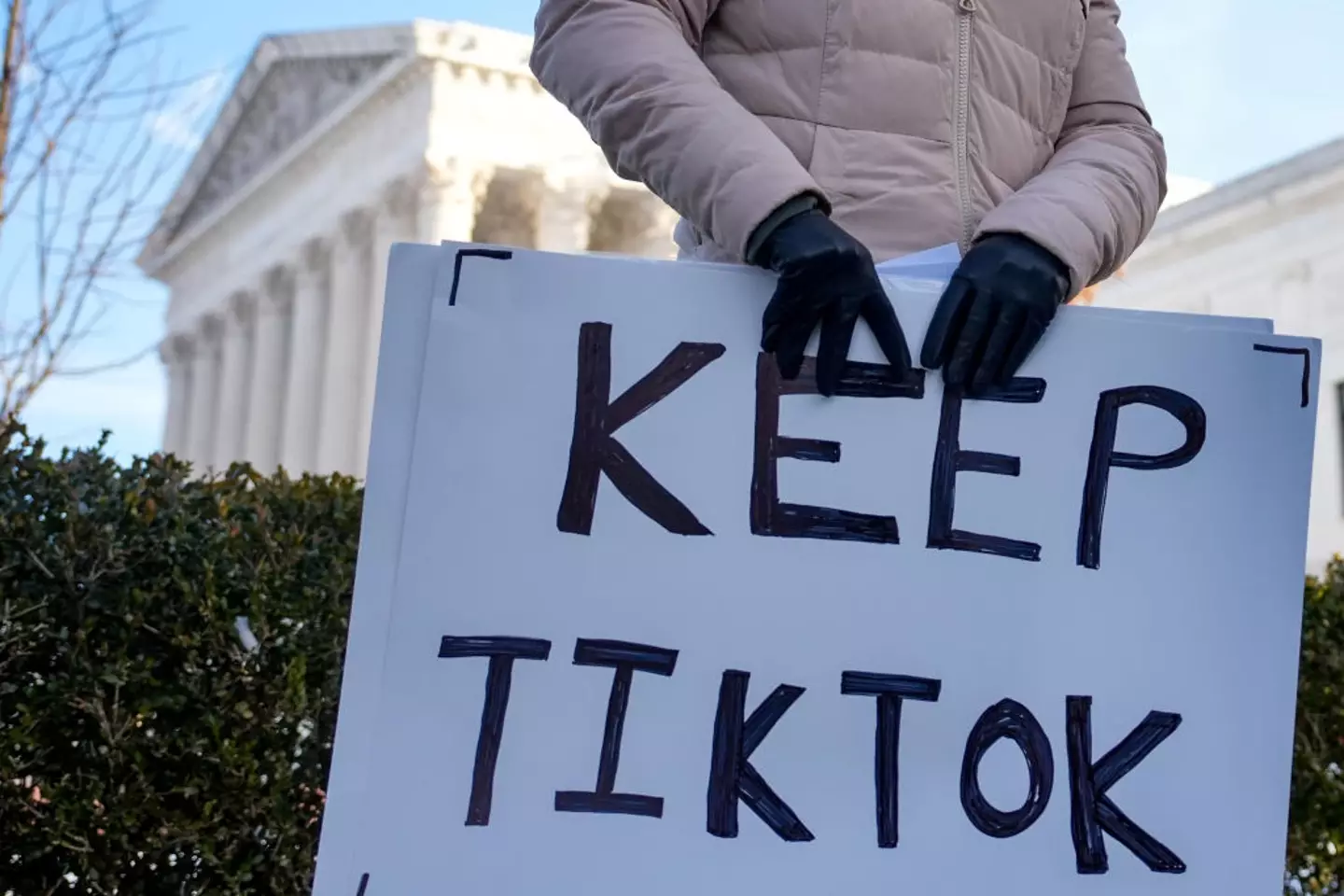
Many US users of TikTok are begging for the ban to be avoided (Andrew Harnik/Getty Images)
What is clear is that Musk could likely afford it as his current net worth stands at around $432 billion, but it would likely take a significant sacrifice and potentially require outside investment in order for the sale to go through.
Musk has previously pushed back against the ban of TikTok in America, declaring on X: “In my opinion, TikTok should not be banned in the USA, even though such a ban may benefit the X platform. Doing so would be contrary to freedom of speech and expression. It is not what America stands for.”
This could indicate that the billionaire would be open to ‘saving’ TikTok in the name of free speech, although some might argue that two of the world’s leading social media platforms being owned by the same individual isn’t the expression of free speech that it seems.
